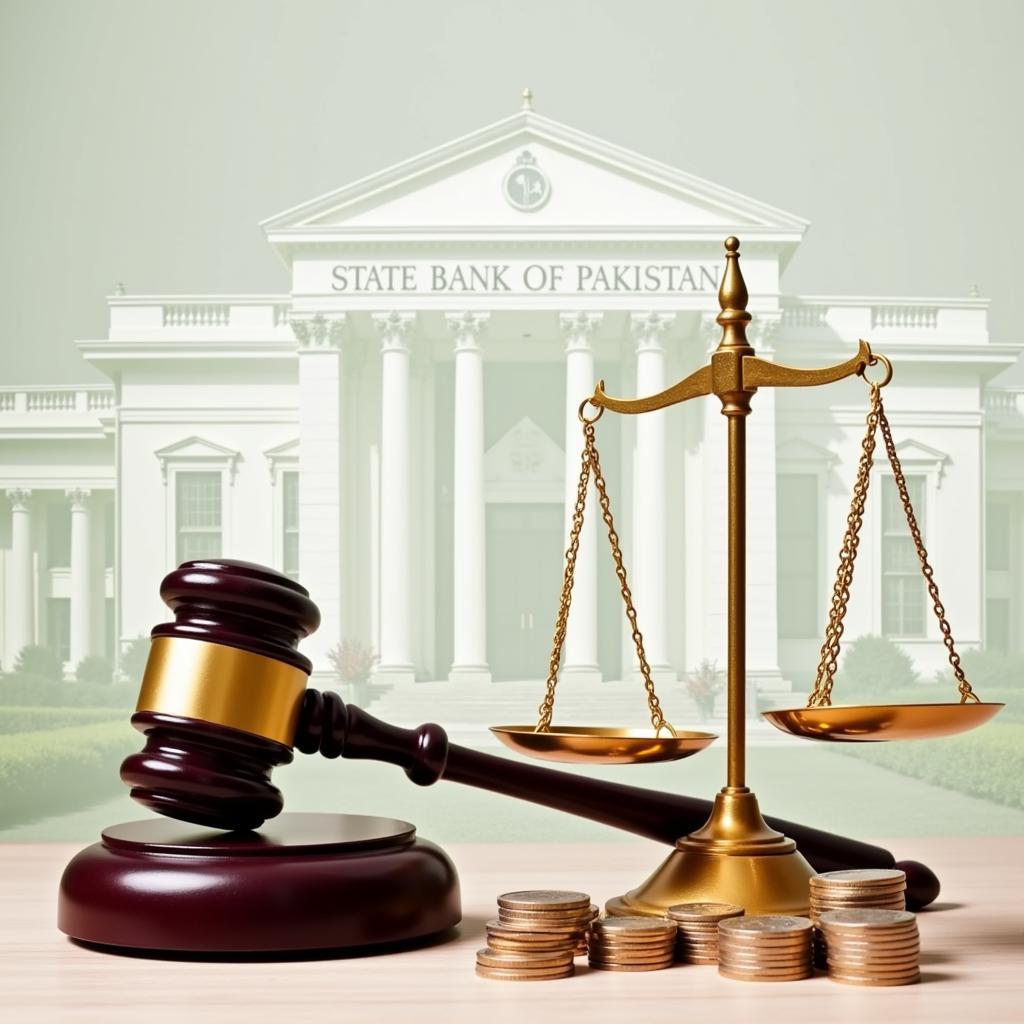The Foreign Exchange Regulation Act 1947 (FERA) is a cornerstone of Pakistan’s financial legislation, governing foreign exchange transactions and aiming to conserve valuable foreign resources. This act plays a crucial role in regulating international trade, investment, and other financial activities involving foreign currency. Understanding its provisions is essential for anyone engaging in cross-border transactions involving Pakistan.
Key Provisions of the Foreign Exchange Regulation Act 1947
The FERA 1947 established a framework for controlling foreign exchange dealings within Pakistan. It grants significant powers to the State Bank of Pakistan to regulate and monitor foreign currency transactions, ensuring they align with national economic interests. Some of the core elements of the act include restrictions on the acquisition, holding, and disposal of foreign exchange, along with regulations for payments to and from non-residents. FERA 1947 also covers aspects like import and export licensing and procedures for authorized dealers in foreign exchange.
One important aspect of FERA 1947 is its focus on preventing unauthorized dealings in foreign exchange. This includes clamping down on black market activities and ensuring transparency in international financial transactions. The act also aims to curb capital flight and maintain stability in the Pakistani Rupee.
 Foreign Exchange Regulation Act 1947 Pakistan Overview
Foreign Exchange Regulation Act 1947 Pakistan Overview
Penalties and Enforcement under FERA 1947
FERA 1947 provides for stringent penalties for violations of its provisions. These penalties can include fines, imprisonment, and confiscation of assets. The State Bank of Pakistan and other authorized agencies are responsible for enforcing the act and investigating suspected violations. This strong enforcement mechanism is designed to deter illegal foreign exchange activities and ensure compliance with the law.
FERA 1947 also empowers the government to issue notifications and amend the regulations as needed to adapt to changing economic circumstances and global financial dynamics. This flexibility allows the act to remain relevant and effective in addressing contemporary challenges in foreign exchange management.
How the Foreign Exchange Regulation Act 1947 Impacts Businesses
The Foreign Exchange Regulation Act 1947 has significant implications for businesses operating in Pakistan or engaging in trade with the country. Companies involved in import and export activities must adhere to the regulations regarding foreign exchange transactions. This includes obtaining necessary approvals and licenses, maintaining proper documentation, and complying with reporting requirements.
Navigating FERA 1947 for Foreign Investors
Foreign investors looking to invest in Pakistan need to be aware of the provisions of FERA 1947. The act outlines procedures for bringing foreign capital into the country and repatriating profits. Understanding these regulations is crucial for successful investment ventures in Pakistan.
“Understanding the nuances of FERA 1947 is critical for foreign investors to ensure smooth operations and avoid legal complications,” says Asim Khan, a leading financial consultant based in Karachi.
Evolution and Amendments to the Foreign Exchange Regulation Act 1947
Over the years, FERA 1947 has undergone several amendments to address evolving economic realities and align with international best practices. These revisions have aimed to simplify procedures, promote transparency, and facilitate legitimate foreign exchange transactions. Staying updated on these changes is vital for businesses and individuals dealing with foreign currency.
“Keeping abreast of the amendments to FERA is essential for businesses to remain compliant and leverage opportunities in the global market,” advises Fatima Hassan, a legal expert specializing in international trade law.
Conclusion
The Foreign Exchange Regulation Act 1947 remains a pivotal piece of legislation in Pakistan’s financial landscape. Understanding its intricacies is crucial for individuals and businesses engaged in foreign exchange transactions. By adhering to the provisions of FERA 1947, businesses can contribute to a stable and regulated foreign exchange market while avoiding potential legal issues.
FAQs
- What is the primary objective of FERA 1947? To regulate and control foreign exchange transactions in Pakistan.
- Who enforces FERA 1947? The State Bank of Pakistan and other authorized agencies.
- What are the penalties for violating FERA 1947? Fines, imprisonment, and confiscation of assets.
- How does FERA 1947 impact foreign investors? It outlines procedures for bringing in and repatriating capital.
- Where can I find the latest amendments to FERA 1947? The State Bank of Pakistan website provides updated information.
- How does FERA 1947 affect import and export businesses? It dictates the procedures for foreign currency transactions related to trade.
- What is the role of authorized dealers in FERA 1947? They are authorized to conduct foreign exchange transactions under the act’s provisions.
For further assistance, please contact us at Phone Number: +923337849799, Email: news.pakit@gmail.com, or visit our office at Dera Ghazi Khan Rd, Rakhni, Barkhan, Balochistan, Pakistan. We have a 24/7 customer service team available to assist you.